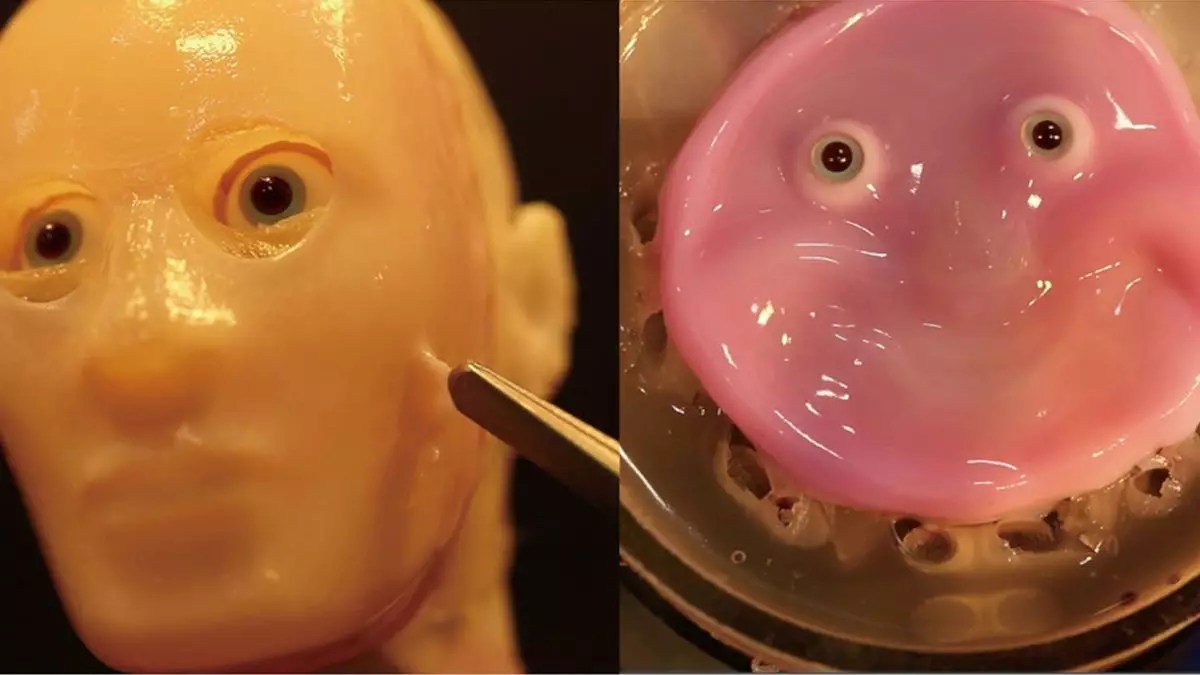The recent development by a team of bioengineers at Harvard University, involving the creation of a mask made out of living human skin cells to be worn by robots, has sparked a heated debate among scientists and ethicists alike. While the potential applications of artificial flesh and skin in the fields of surgery, cosmetics, and pharmaceutical research are undeniable, the concept of human-like robots raises serious ethical concerns.
The idea of robots with human-like features, such as facial expressions and skin texture, has long been a staple of science fiction and has often been portrayed in a negative light. The recent development of robots that can smile and mimic human emotions using living human skin cells only adds to the unease surrounding the creation of such beings.
The unsettling appearance of these human-like robots, with their ever-staring eyes and rictus grimaces, raises questions about the boundaries between man and machine. The use of Dr Who-esque skin stretching techniques only serves to heighten the sense of unease and discomfort surrounding these creations.
While there is no denying the scientific advancements that have been made in creating human-like robots, with the potential for mimicking emotions and facial expressions, the ethical implications of such advancements cannot be ignored. The use of human skin cells in robotics blurs the lines between man and machine, raising questions about the nature of consciousness and the rights of artificial beings.
On one hand, the development of human-like robots could revolutionize the fields of medicine, cosmetics, and emotional therapy. The ability to create robots that can interact with humans on a more intimate level could have profound implications for the treatment of various mental and physical health conditions.
However, on the other hand, the creation of human-like robots with living human skin cells could lead to a host of ethical dilemmas. Questions about the rights and autonomy of such beings, as well as the potential for misuse and abuse of this technology, loom large in the minds of many ethicists and scientists.
The development of human-like robots with living human skin cells represents a significant leap forward in the field of robotics and bioengineering. However, the ethical implications of creating such beings must be carefully considered and debated. As technology continues to advance at a rapid pace, it is essential that we as a society take the time to reflect on the consequences of our actions and strive to create a future that is both technologically advanced and ethically responsible.


Leave a Reply